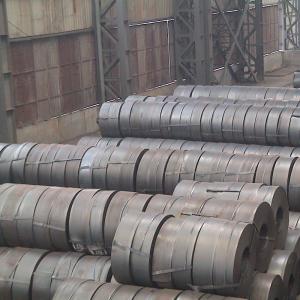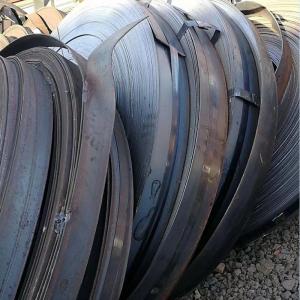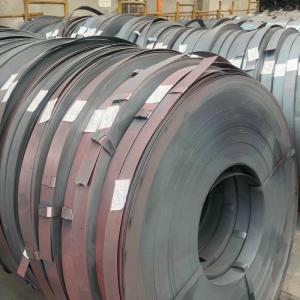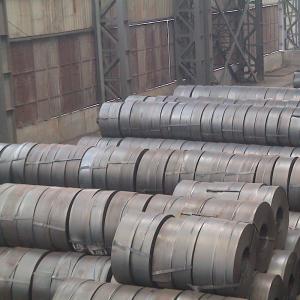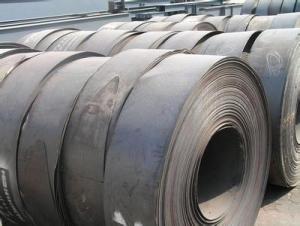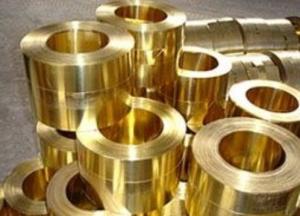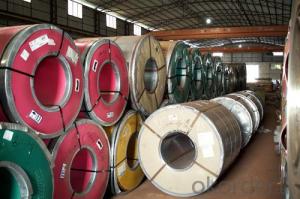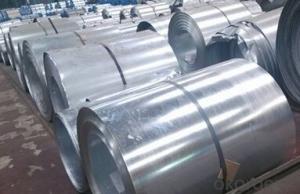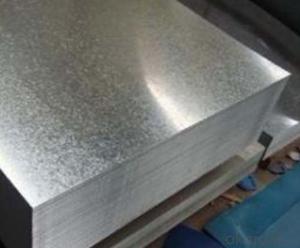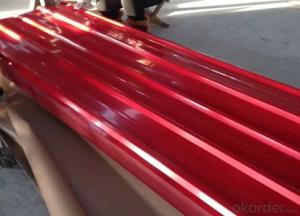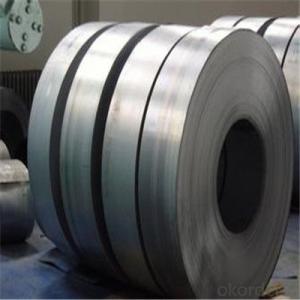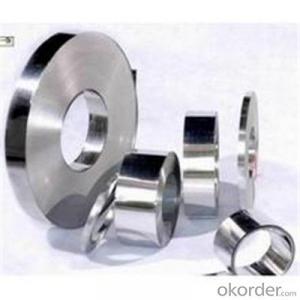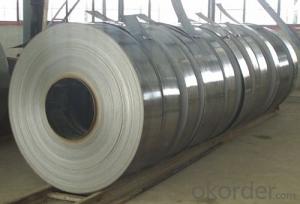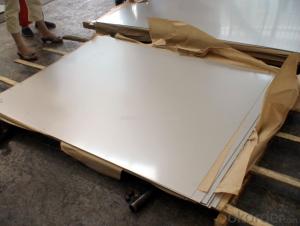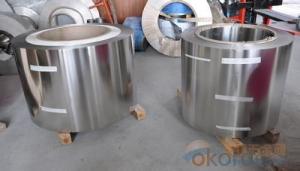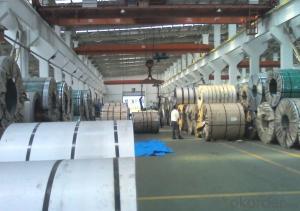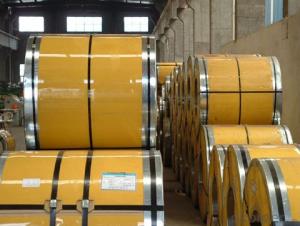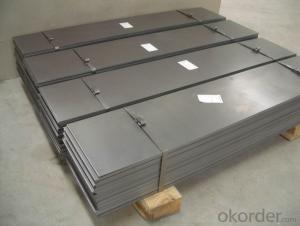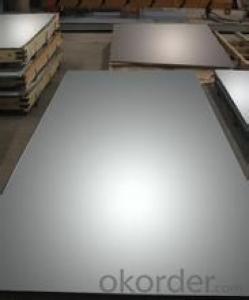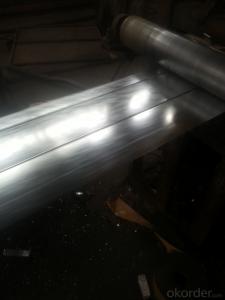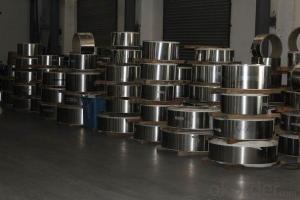Hot Rolled Steel Strip Coil Q195 Q235 in China
- Loading Port:
- Shanghai
- Payment Terms:
- TT or LC
- Min Order Qty:
- 25 m.t.
- Supply Capability:
- 1000000 m.t./month
OKorder Service Pledge
OKorder Financial Service
You Might Also Like
Item specifice
Applications of Steel Strip Coils:
1:Chemical industry equipment, Industrial tanks
2:Medical Instruments,Tableware, Kitchen utensil,kitchen ware
3:Architectural purpose, Milk & Food processing facilities
4:Hospital Equipment, interior Exterior decoration for building
5:Architectural purposes, escalators, kitchen ware,vehicles
Festures of Steel Strip Coils:
1. Each coil is closely covered by oil paper or plastic film.
2. Outside it is firmly packed with sack cloth or compound paper.
3. Steel strap or PP strap to pack the outside to ensure safety.
4. On/about 1000kgs to be packed with one wooden pallet.
5. Strips can be loaded to 20'FCL without pallet if required by customer.
6. LCL shipment can also be arranged once required by the customer.
Specifications of Steel Strip Coils:
| Description | Hot Rolled Steel Strip |
| Specification | 1.2-6.0mm*70mm |
| Standard | AISI, ASTM, BS, DIN, GB, JIS |
| Material | Q195,Q215,Q215B,Q235,Q235B |
| Application | Widly used in welding steel pipes, and bicycle making etc. |
| MOQ | 20 tons or according to customers’ requirement. |
| Port of Delivery | Tianjin Port of China |
| Remarks | We can provide qualify goods,competitive price and speedy delivery |
Images of Steel Strip Coils:
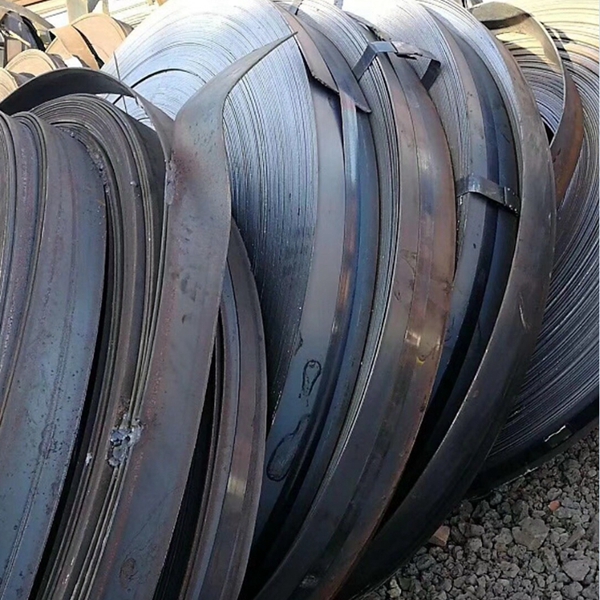
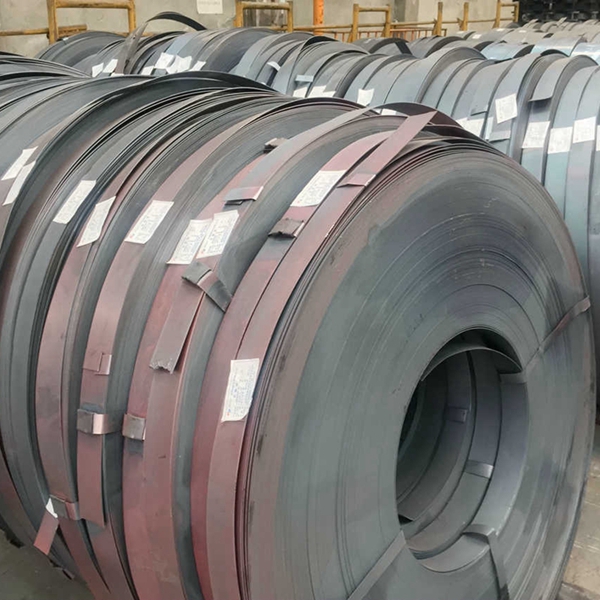
FAQ
1.What's your MOQ?
25MT, it is for one container.
2.Do you have QC teams?
Yeah, sure, our QC team is very important, they will keep the quality control for our products.
3. What's your normal delivery time?
Our delivery time about 10-20days for standard sizes, if you have other requirements like hardness and width ,it is about 20-40days.
- Q:Are steel strips suitable for high-stress applications?
- Yes, steel strips are suitable for high-stress applications. Steel is known for its high strength and durability, making it an ideal material for withstanding heavy loads and extreme conditions. Steel strips can be designed and manufactured to meet specific requirements, ensuring they are capable of handling high-stress situations effectively.
- Q:What are the different alloys used in steel strips?
- Steel strips commonly incorporate various alloys to enhance their properties and meet specific application needs. Some of the frequently utilized alloys in steel strips are as follows: 1. Carbon Steel: The most prevalent alloy in steel strips, carbon steel, encompasses different carbon levels that enhance its strength and hardness. Carbon steel strips are extensively employed in diverse applications, ranging from construction to automotive manufacturing. 2. Stainless Steel: Chromiun and occasionally nickel are alloyed with stainless steel strips. This alloy endows the steel with exceptional corrosion resistance and durability. Industries such as food processing, chemical, and medical extensively utilize stainless steel strips. 3. Silicon Steel: Silicon is alloyed with steel strips to improve their magnetic properties. These strips are predominantly employed in the production of electrical transformers, motors, and generators. 4. Galvanized Steel: To protect against corrosion, galvanized steel strips are coated with a layer of zinc alloy. This coating also enhances their durability. Galvanized steel strips commonly find application in outdoor settings, such as roofing and fencing. 5. Tool Steel: Tungsten, molybdenum, and chromium are among the various elements alloyed with tool steel strips. These alloys elevate the steel's hardness, wear resistance, and heat resistance. Tool steel strips are primarily utilized in the production of cutting tools, dies, and molds. 6. High-Strength Low-Alloy (HSLA) Steel: HSLA steel strips contain small amounts of other elements like manganese, phosphorus, and vanadium. This alloying process augments the steel's strength and toughness while preserving good weldability. HSLA steel strips find applications in industries such as automotive, construction, and heavy equipment manufacturing. These examples represent merely a fraction of the diverse alloys employed in steel strips. The selection of an alloy depends on the desired properties of the steel and the specific requirements of the application.
- Q:What are the typical tolerances for steel strips?
- The typical tolerances for steel strips vary depending on the specific requirements and industry standards. However, common tolerances for steel strips can range from +/- 0.001 inches to +/- 0.030 inches, depending on factors such as strip thickness, width, and the intended application. It is essential to refer to industry-specific standards or consult with manufacturers for precise tolerances.
- Q:What are the different tolerances for steel strips?
- The different tolerances for steel strips can vary depending on the specific application and industry standards. Generally, tolerances for steel strips are specified to ensure the desired level of precision and quality in the final product. In terms of width tolerance, steel strips can have different ranges depending on the manufacturing process and customer requirements. For instance, precision cold-rolled steel strips used in industries like automotive or electronics may have a width tolerance of +/- 0.05mm or even tighter, while hot-rolled steel strips used in construction or structural applications may have slightly wider tolerances, such as +/- 0.1mm. Thickness tolerance is another important aspect, especially for steel strips used in critical applications. Again, the tolerance can vary depending on the manufacturing method and customer specifications. Cold-rolled steel strips, known for their high precision, often have tight thickness tolerances ranging from +/- 0.005mm to +/- 0.03mm. On the other hand, hot-rolled steel strips may have slightly looser tolerances, typically ranging from +/- 0.1mm to +/- 0.5mm. Flatness tolerance is also a critical factor, especially for steel strips used in applications that require a smooth and flat surface. Flatness tolerance is usually specified as a maximum deviation from a perfectly flat surface. For instance, cold-rolled steel strips may have a flatness tolerance of a few microns, such as 0.002mm, while hot-rolled steel strips may have a tolerance of around 0.1mm. Additionally, other factors such as edge burr tolerance, surface quality, and mechanical properties may also be specified depending on the application and customer requirements. It is essential to note that these tolerances are general guidelines, and specific tolerances can vary depending on the industry, product requirements, and individual manufacturers' capabilities. Therefore, it is always crucial to consult the relevant standards, specifications, or the steel strip manufacturer for precise information on tolerances for a specific steel strip.
- Q:Can steel strips be used for making springs or clips?
- Yes, steel strips can be used for making springs or clips. Steel is a common material choice for springs and clips due to its high strength, durability, and flexibility. Steel strips can be precisely cut and formed into the desired shape for various applications, including springs and clips.
- Q:Why does the strip bend when it is rolled?
- In the rolling process of strip tension is too large or too small will bring many adverse effects on the operation, including in the choice of a plan, must be properly chosen at each strip tension, if the improper selection of strip tension, will affect the quality of strip steel and the actual operation, when the strip coiler tension before and after the selection is too large that will cause the broken belt or rolled steel coil is heart-shaped, tension is too small will cause damage to roll off with Le roll or strip.
- Q:What are the typical dimensions of steel strips?
- The dimensions of steel strips can vary depending on their specific application and industry standards. However, there are some common typical dimensions that are widely used. Steel strips are generally thin, flat pieces of steel that are produced in a continuous strip form. The width of steel strips can range from a few millimeters to several hundred millimeters, depending on the intended use. Common widths for steel strips are between 20 mm and 200 mm. The thickness of steel strips also varies depending on the desired strength and flexibility. It can range from very thin gauges (less than 1 mm) to thicker gauges (up to 10 mm or more). The thickness is often specified in terms of gauge, which is a standardized measurement system for sheet metal thickness. The length of steel strips can be as long as the manufacturing process allows or as short as the customer requires. Standard lengths are often based on the size of the coil or roll in which the steel strip is produced. These coils can range from a few meters to several kilometers long. It is important to note that these dimensions are not fixed and can be customized based on specific requirements. Some steel strips may have special dimensions depending on the industry they serve, such as automotive, construction, or manufacturing. Therefore, it is always best to consult the relevant industry standards or specifications to determine the typical dimensions for a specific application.
- Q:Can steel strips be used for making electrical connectors in electronic devices?
- Indeed, electrical connectors in electronic devices can be crafted using steel strips. The utilization of steel strips in the production of electrical connectors is widespread owing to their remarkable conductivity and durability. These strips establish a dependable and efficient connection between diverse components in electronic devices. The pliability and malleability of steel strips enable them to be effortlessly molded into numerous connector designs, granting them versatility in their application. Furthermore, steel strips exhibit exceptional resistance to corrosion, guaranteeing the durability of the connectors. All in all, steel strips emerge as a fitting material selection for the fabrication of electrical connectors in electronic devices.
- Q:What are the main factors affecting the wear resistance of steel strips?
- The main factors affecting the wear resistance of steel strips include the composition and microstructure of the steel, the hardness and surface finish of the strips, the presence of impurities or alloying elements, the type and intensity of the applied load, the environment in which the strips are used, and the lubrication or lack thereof.
- Q:How are steel strips used in the automotive industry?
- Steel strips are used in the automotive industry for a variety of purposes, such as forming the body panels, reinforcement in structural components, and manufacturing of springs and suspension systems.
1. Manufacturer Overview |
|
|---|---|
| Location | |
| Year Established | |
| Annual Output Value | |
| Main Markets | |
| Company Certifications | |
2. Manufacturer Certificates |
|
|---|---|
| a) Certification Name | |
| Range | |
| Reference | |
| Validity Period | |
3. Manufacturer Capability |
|
|---|---|
| a)Trade Capacity | |
| Nearest Port | |
| Export Percentage | |
| No.of Employees in Trade Department | |
| Language Spoken: | |
| b)Factory Information | |
| Factory Size: | |
| No. of Production Lines | |
| Contract Manufacturing | |
| Product Price Range | |
Send your message to us
Hot Rolled Steel Strip Coil Q195 Q235 in China
- Loading Port:
- Shanghai
- Payment Terms:
- TT or LC
- Min Order Qty:
- 25 m.t.
- Supply Capability:
- 1000000 m.t./month
OKorder Service Pledge
OKorder Financial Service
Similar products
New products
Hot products
Hot Searches
Related keywords
